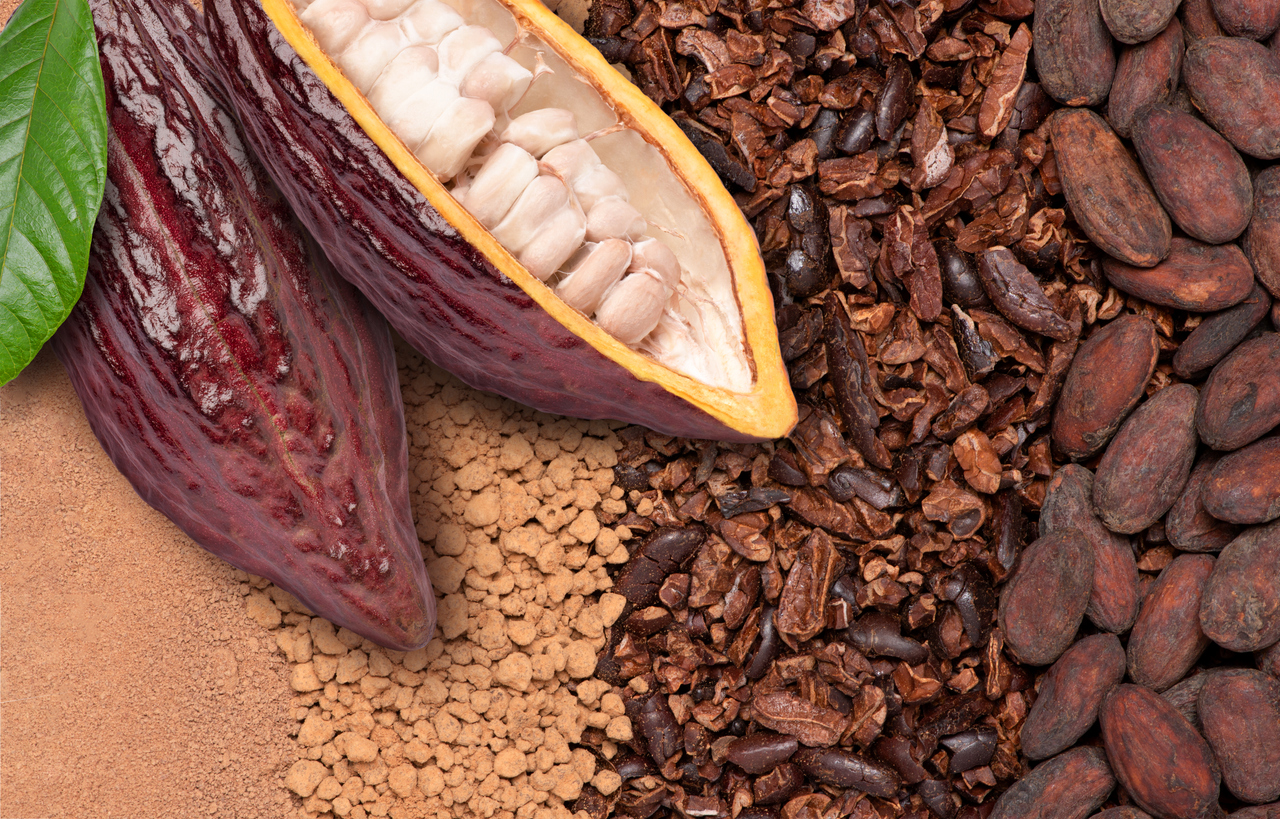- California Cultured—a startup producing flavanol-rich cocoa and other botanicals via plant cell culture, has secured a “significant” investment from Sparkalis, the corporate venture arm of bakery ingredients and chocolate giant Puratos.
- The “investment towards future partnership” will help transform the way cocoa and chocolate are produced in a market where demand is expected to dramatically exceed supply in the coming years, claims California Cultured.
- The Davis, CA-based firm, which recently struck a deal with Japanese food giant Meiji to feature its cocoa powder in confectionery and wellness products, hopes to complete construction on a 12,000 sq ft facility in West Sacramento in mid-December.
Scaling up
“There’s no exclusivity with Sparkalis, but there’s excitement about utilizing the full extent of our technology, which was one of the conditions we were very happy to work with,” CEO Alan Perlstein told AgFunderNews.
“Puratos is very well-known for making very high-quality chocolate and baking ingredients and it has a really extensive flavor department as well as fermentation and production capabilities.
“Our focus is most likely the high-flavanol cocoa, but we’re working with them on other things as well. This partnership is mostly about scaling up, and we’re very excited to work with them because they understand the problems in biomanufacturing and they really like our solution.”
He added: “We’ve had some big breakthroughs in our cocoa technology that we’re going to be announcing soon; we’re just filing the last pieces of IP on that. We’re also hoping to be able to announce another partnership around cocoa soon.”
What is plant cell culture?
Rather than using sunlight, water, and soil to nurture fully-grown plants, California Cultured grows cacao plant cells indoors in bioreactors fed on sugars, vitamins, minerals, and other nutrients. To make cocoa, the cells are harvested, fermented, dried, and roasted.
Plant cell culture technology is already used on a commercial scale to produce a handful of drugs, notably breast cancer drug Taxol, but has recently attracted interest in the nutraceuticals space as botanical supply chains become increasingly threatened.
That said, growing cocoa in bioreactors is seen as especially challenging given the large volumes required and relatively low prices compared to, say, saffron or vanilla, even with recent price hikes.
However, Perlstein insists the unit economics make sense: “We’ve had a lot of success over the last year validating some of our newer processes and newer biomanufacturing technology that could allow us to produce systems that could bring the price of cocoa and coffee to be competitive with current commodity prices.”
Bioreactors: ‘There are big limitations with using steel’
That said, the numbers don’t add up if you rely on huge steel bioreactors, said Perlstein, who has been experimenting with plastics. “From the beginning, we saw there were very big limitations with using steel. You need steam, pipes, huge amounts of infrastructure, concrete, and it’s just so expensive and so many companies got in significant trouble by trying to commission these 100,000-liter systems without fully understanding these processes.
“Some companies in plant cell culture have used some of these traditional systems, but this only makes sense if you are selling something incredibly high value like breast cancer drugs. So we see the future in [lower-cost] plastic based systems; that’s really going to be the only way that a lot of this stuff is truly going to scale and get to these commodity prices.”
But don’t plastics have to be ditched and replaced with every batch?
Not necessarily, said Perlstein, who is going through the self-GRAS process in the US market and hopes to secure a coveted “no questions” letter from the FDA next year.
“It depends on the plastic material and its configurations and the types of cells you’re growing. Plant cells are relatively robust; they have a certain level of protection such that they can fend off some microorganism attacks and small amounts of contamination. So that basically allows many of these plastic systems to be used multiple times before they need to be discarded.
“There’s also some newer configurations that could be used on a semi-permanent basis, similar to [some plastic] vessels used in the beer and wine industry. Once we started experimenting with this, we were sort of blown away, so we’re working right now with some partners to start scaling this up.”
As for feedstocks, he said, “It’s mostly dextrose, and we’re partnered with a very large producer. We also have amino acids, a few minerals, and some phytonutrients.”

“Massive’ increase in cocoa flavanols by weight
While California Cultured is not genetically engineering its cells, it is using its understanding of plant metabolomics to help guide its process, said Perlstein.
“Over the last couple of years there has been a large effort to understand metabolic pathways in cocoa, mostly in the course of trying to understand disease, but that has also unlocked lots of similar or parallel pathways [around areas such as the production of bioactives].”
Plant cell culture can ensure a consistent supply of botanicals with supply chains increasingly threatened by climate change and unpredictable weather, political instability, adulteration, disease, and heavy metals and pesticides from soil, noted Perlstein.
It also offers the promise of rapid, consistent, and controlled production of plant compounds regardless of season or location in a sterile environment, with no pesticides, added Perlstein, who cofounded the company in 2020 with plant cell culture pioneer Dr. Harrison Yoon, a former chief scientific officer at Diana Plant Sciences, and Deborah Neumann.
“To make our cocoa, after we harvest the biomass we ferment it with microbes that produce a very consistent result, whereas with cocoa out in the jungle, it’s a far less controlled process, so you get a lot of changes in flavors from one batch to the other, depending on the weather, the moisture level, and so many different criteria, which is something the chocolate companies then have to address.”
Most notably, he said, plant cell culture can also deliver higher yields of certain bioactives. For example, by understanding the metabolic pathways that produce certain polyphenols and the precise conditions that drive plants to generate more of them, skilled players in plant cell culture can achieve concentrations of flavanols that far exceed those produced by cocoa plants grown via traditional agriculture.
“Natively, flavanols are under 1% of cocoa mass from a cocoa bean whereas we have between 20-25% of cocoa flavanols by weight, which is a massive increase in not only the content, but also the subtypes of cocoa flavanols,” said Perlstein. “And this is something chocolate companies really want to explore.”
‘It’s almost guaranteed that the price of these ingredients is going to skyrocket’
Stepping back, he said: “With plant cell culture, we honestly see that you could produce the gamut of plant-based ingredients at a more sustainable and we think economic path going forward.”
Proteins from precision fermentation are “amazing,” said Perlstein, who spent several years coaxing microbes to produce sweet proteins in fermentation tanks before getting into plant cell culture. “But we also want all these other far more complex ingredients, flavors, colors and unique aromas that only the plant world can provide, but where unfortunately, it’s getting more difficult, more expensive to produce them via traditional agriculture.
“If we see the continuing degradation of some of these tropical environments, it’s almost guaranteed that the price of these ingredients is going to skyrocket. So in essence, we’re trying to build this basic platform that can eventually produce almost any type of rare or valuable plant based compound.”
Logically, he added, “plant cell culture can be massively more efficient [than conventional agriculture], especially because the turnaround time for starting a cycle and harvesting is usually a few days rather than months or even years between planting something and harvesting it.”
Investors and plant cell culture
As for investors, they all understand the threat to cocoa and coffee supply chains, he said. Meanwhile snacks and confectionery giant Mondelēz International has already shown its interest by investing in fellow cell-cultured cocoa startup Celleste Bio and including Kokomodo, another startup in the space, in its CoLab Tech accelerator cohort this year.
That said, potential backers still want proof that growing plant cells in a bioreactor is scalable said Perlstein, who has raised $15.9 million to date from investors including including Meiji, Agronomics, and CULT Food Science Corp, along with Sparkalis.
“There’s been a lot of what I call milestone inflation and truly the bar has risen greatly for any company to gain investors’ trust, but we think that at scale it’s definitely going to hit many of the price points that we see today for cocoa, never mind tomorrow. I think acceptance will occur once you see 200,000 liters of these newer reactors producing, eventually, tons of product every hour.”
Further reading:
Real cocoa… without the beans? Kokomodo deploys plant cell culture to tackle cocoa supply challenge
ReaGenics deploys plant cell culture to create potato biomass with 31% protein content





